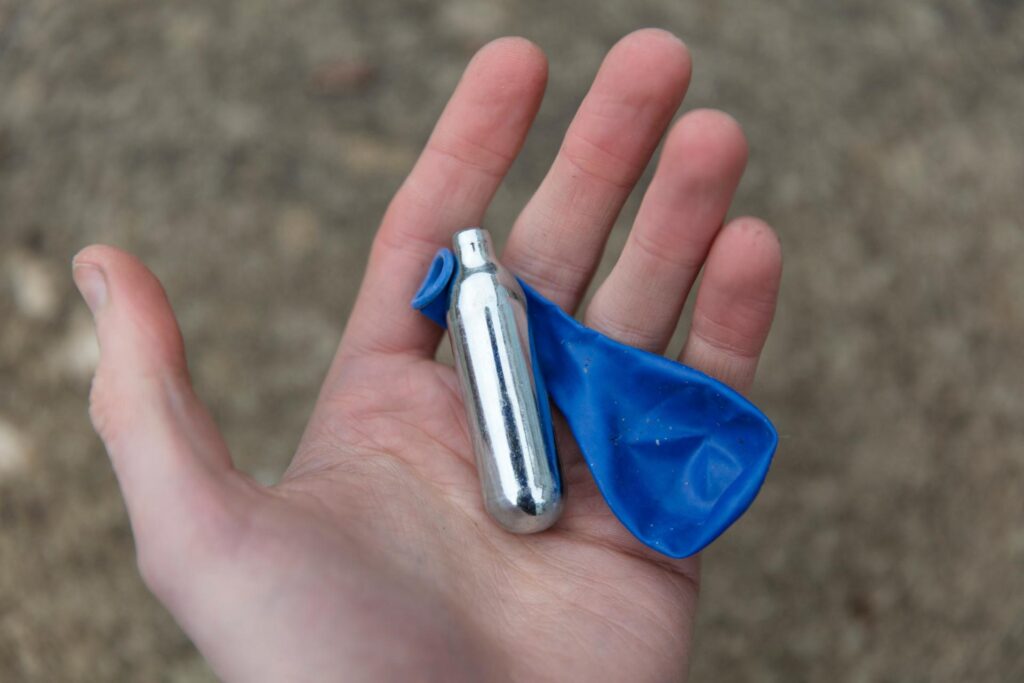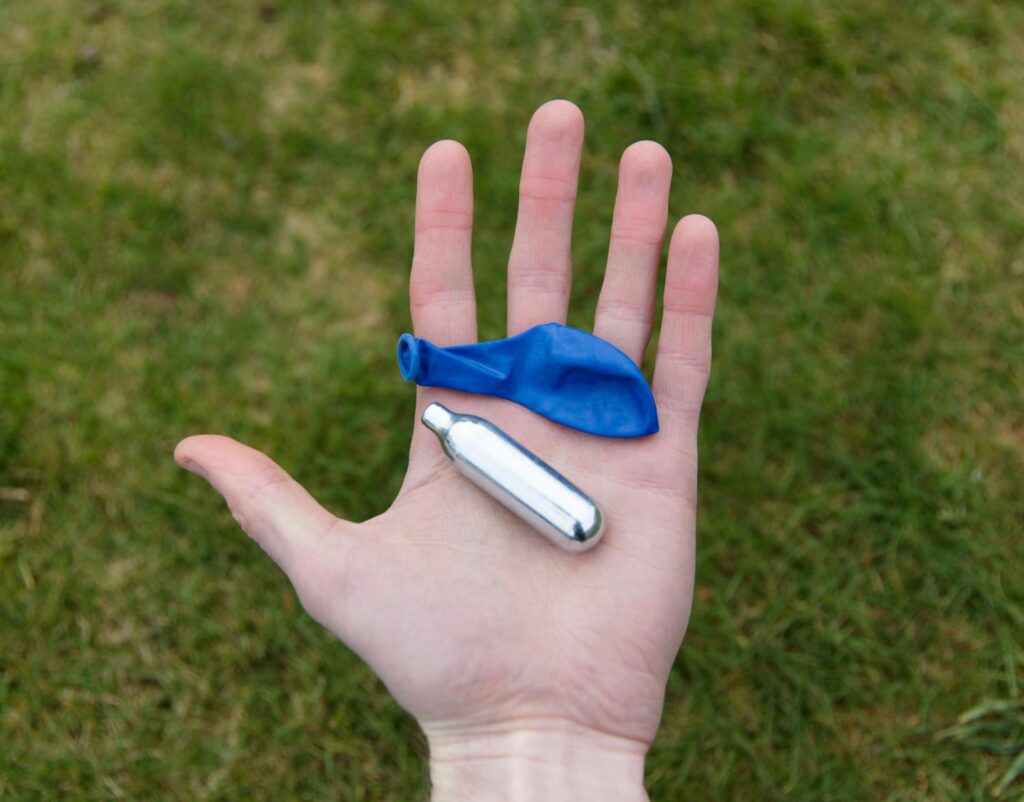Adelante Recovery Centers offers evidence-based addiction treatment for people struggling with addiction to inhalants like nitrous oxide. Inhalant abuse can pose serious risks to a person’s health and well-being, so it’s vital to get treatment for yourself or a loved one.
The team at Adelante Recovery is here to help you get well. Our compassionate team strives to create a safe, supportive environment where you can focus on healing and recovery from addiction to inhalants.
We offer luxury residential inpatient treatment at our beautiful rehab center in the Corona Del Mar neighborhood of Newport Beach. We also partner with several outpatient treatment providers in and around Orange County. Our team will help you find the right treatment program for your needs.
People who abuse inhalants commonly refer to it as snorting, sniffing, huffing, or dusting. Slang terms for inhalants include poppers, snappers, glue, bang, sniff, whippets, and kick.
Whipped cream cans, nail polish remover, and paint thinner are all examples of common household items that can be used as inhalant drugs. As a result, huffing inhalants has become a growing problem among teens and young adults.
Common inhalants of abuse include:


Solvents are liquids that vaporize at room temperature. They’re common in households and for industrial applications. Examples include:
These are sprays that contain propellants and solvents. Examples include:


Doctors sometimes use gasses as anesthetics for pain prevention during medical and dental procedures. Gasses are also used for household use and in industrial settings.
Nitrous oxide (laughing gas) is one of the most commonly abused gases. Whipped cream cans contain nitrous oxide, often referred to as “whippets.” Butane lighters and propane tanks also contain gases.
These chemical compounds are found in leather cleaners and deodorizers. Because of how nitrites dilate the blood vessels and relax muscles, they are popular for sexual enhancement. Nitrites of abuse include isoamyl (amyl) nitrite, and isobutyl (butyl) nitrite.


If you’re concerned that someone you love may be abusing nitrous oxide (laughing gas) or other inhalants, here are some signs to watch out for:
The high from inhalants only lasts a few minutes, so users might sniff the substances repeatedly over several hours to continue to get high.
Most inhalants produce a rapid high. The effects are similar to alcohol intoxication, making a person feel lightheaded, drowsy, euphoric, and disinhibited. Inhaling a large amount can lead to unconsciousness.
Inhaling nitrites—substances commonly found in leather cleaners and deodorizers—dilates a person’s blood vessels and increases their heart rate. The person might feel flush or hot, which can last for several minutes. Nitrites are often abused to enhance sexual function and pleasure.
Abusing inhalants poses serious short- and long-term health risks. In the short term, a person may pass out or hurt themselves after becoming dizzy or disoriented.
The long-term effects can include lung damage, hearing loss, liver and kidney damage, changes in heart rhythm, and brain damage. Abusing inhalants can lead to seizures, coma, and even death. Using these substances is dangerous.


Adelante Recovery Centers offers comprehensive addiction treatment designed to address your unique needs. Our experienced and compassionate staff provide personalized treatment plans to address substance use disorders and co-occurring mental health disorders.
At Adelante, we offer a full continuum of care that includes:
Our expert staff utilizes evidence-based behavioral therapies, such as cognitive behavioral therapy, to address the underlying causes of substance abuse and teach essential coping skills for long-term recovery.
We also provide dual diagnosis care for individuals with substance abuse issues and co-occurring mental health disorders, such as depression, anxiety, and post-traumatic stress disorder. Our aftercare programs offer ongoing support and guidance to help you transition back into daily life.
At Adelante Recovery Centers, you’ll find the help and support you need to overcome nitrous oxide abuse and inhalant addiction and reclaim control of your life. Our Orange County rehab is located in the beautiful Corona Del Mar neighborhood of Newport Beach, CA.
Commonly abused inhalants include solvents (glue, paint thinners), aerosols (spray paint, hair spray), gasses (nitrous oxide, propane), and nitrites (poppers). These substances contain chemicals that can produce psychoactive effects when inhaled, leading to addiction with repeated use.
Inhalant addiction is less common than addiction to drugs or alcohol, but it still poses a significant health risk, especially for teens and young adults.
In 2021, an estimated 335,000 people aged 12 or older had an inhalant use disorder in the past 12 months, according to the National Institute on Drug Abuse (NIDA). In 2022, an estimated 3.6% of 8th graders, 2.4% of 10th graders, and 1.8% of 12th graders reported using inhalants in the past 12 months, according to NIDA.
Abusing nitrous oxide can cause dizziness, impaired judgment, and even hallucinations. Nitrous oxide can lead to feelings of euphoria, providing a temporary antidepressant effect. This drives some people to use it again and again. But repeated or long-term use has serious health consequences, including nerve damage, hearing loss, and even sudden death due to suffocation or accidents.
Nitrous oxide acts as a depressant on the central nervous system, slowing down brain activity. Chronic abuse of nitrous oxide can lead to cognitive impairment, memory loss, psychiatric symptoms, and even long-term neurological damage.
Nitrous oxide abuse and addiction to inhalant drugs requires a comprehensive approach. This may include detoxification, behavioral therapy, support groups, family involvement, and ongoing monitoring to prevent relapse. Seeking professional help for nitrous oxide abuse and establishing a strong support network are crucial components of successful recovery.
Whether you abuse whippets or other recreational drugs, the expert team of addiction specialists and licensed therapists at Adelante Recovery Centers are here to help you forge a new path forward free of these harmful substances.
Our inhalant abuse treatment programs are tailored specifically for you, based on your personal history and medical needs. We offer drug detox services for those who need it, followed by inpatient treatment to address the underlying causes of substance addiction.
Get in touch with us today to learn more about our nitrous oxide addiction treatment programs or to schedule a tour of our luxury Orange County rehab center in Newport Beach

If you or a loved one are in need of help with addiction, contact us today. Our professional and friendly addiction specialists are able to answer your questions and get things moving in the right direction.
"*" indicates required fields
Adelante Recovery Center is here to help those battling drug and alcohol addiction. We are located in beautiful southern California and welcome those from across the country.
49 Montecito Dr, Corona Del Mar, CA 92625
Phone: (949) 978-0797
Fax: (951) 406-0013
Open 24/7
Adelante Recovery Center is here to help those battling drug and alcohol addiction. We are located in beautiful southern California and welcome those from across the country.
Adelante Recovery Center
49 Montecito Dr, Corona Del Mar, CA 92625
Phone: (949) 978-0797 Fax: (951) 406-0013 Open 24/7